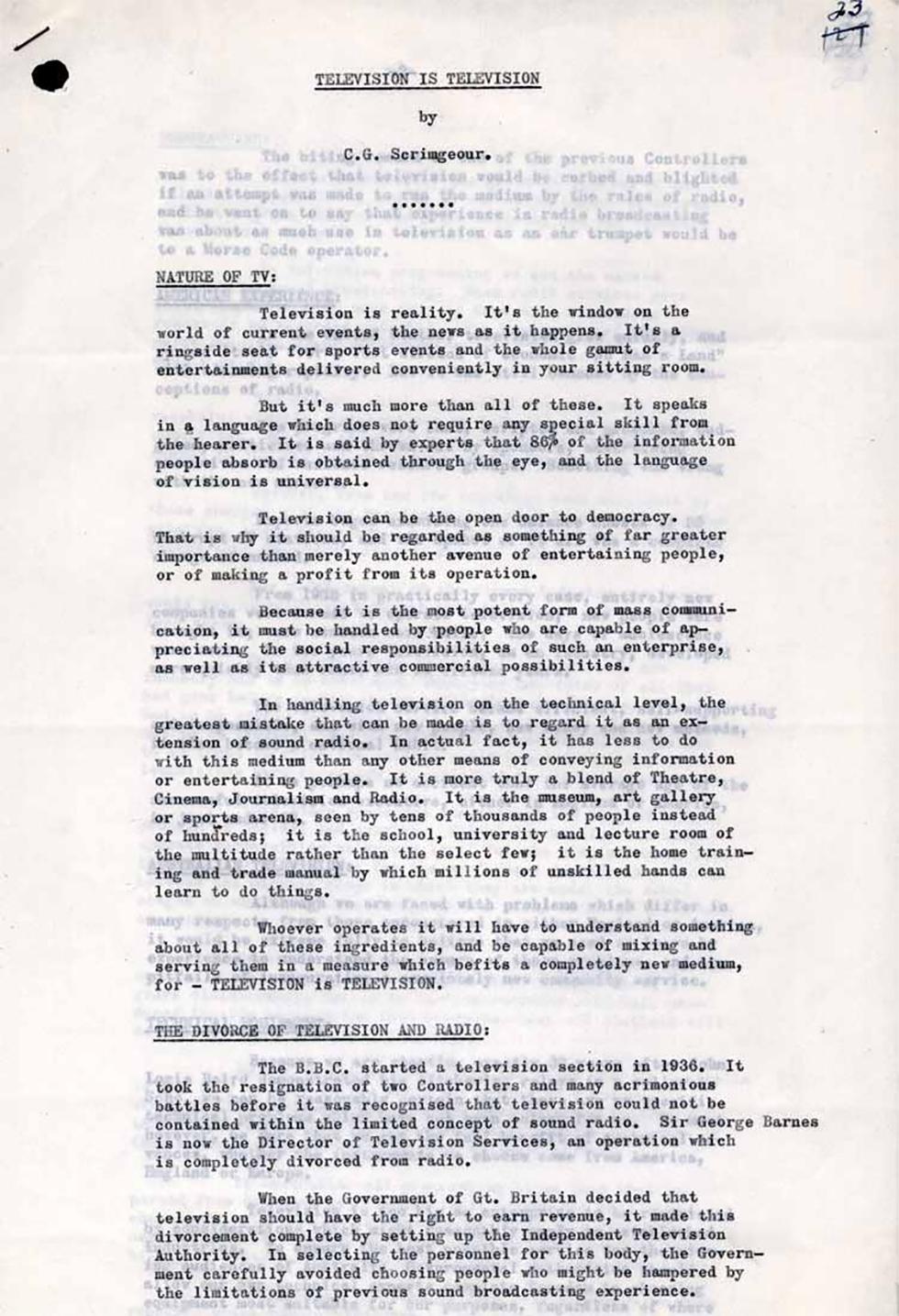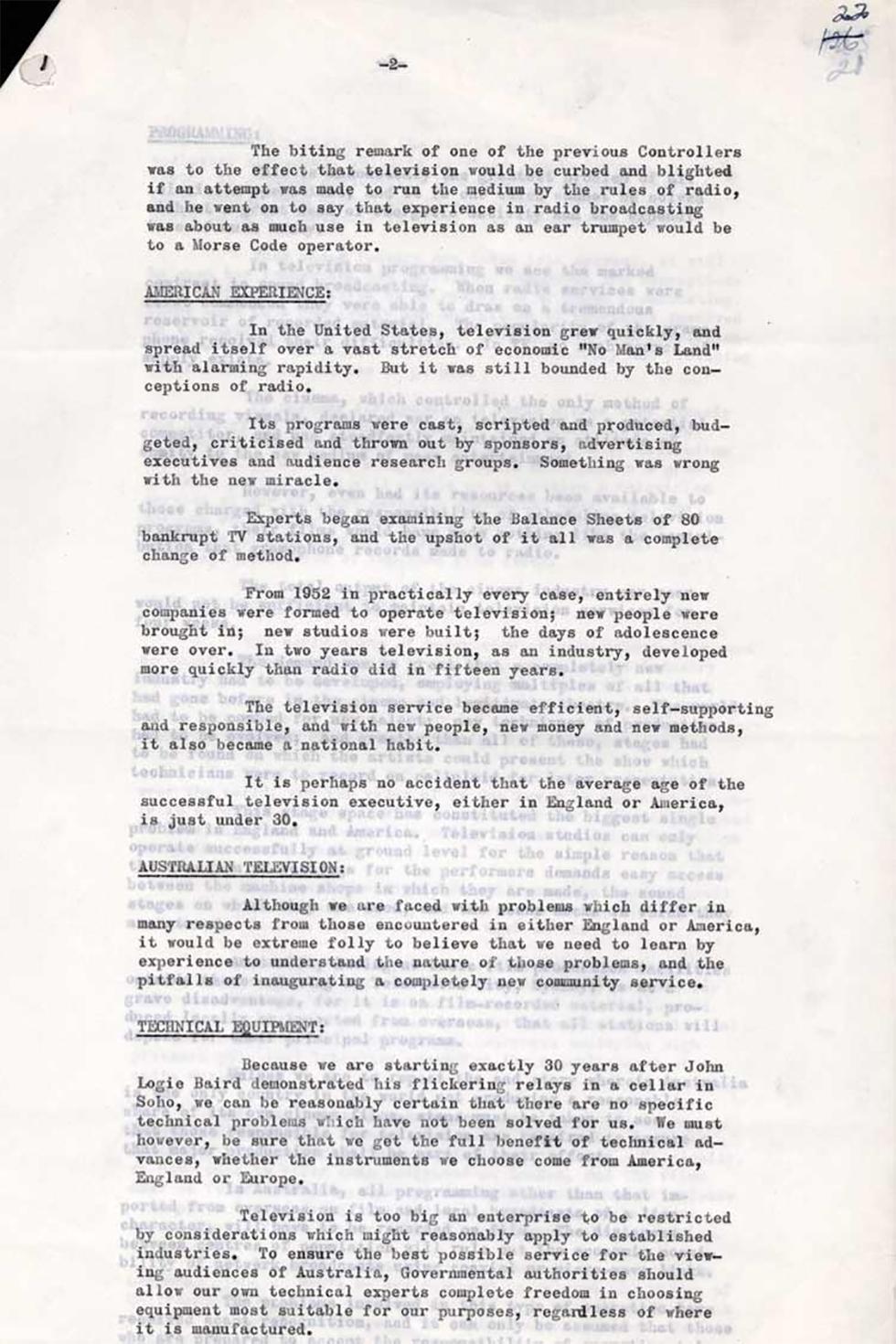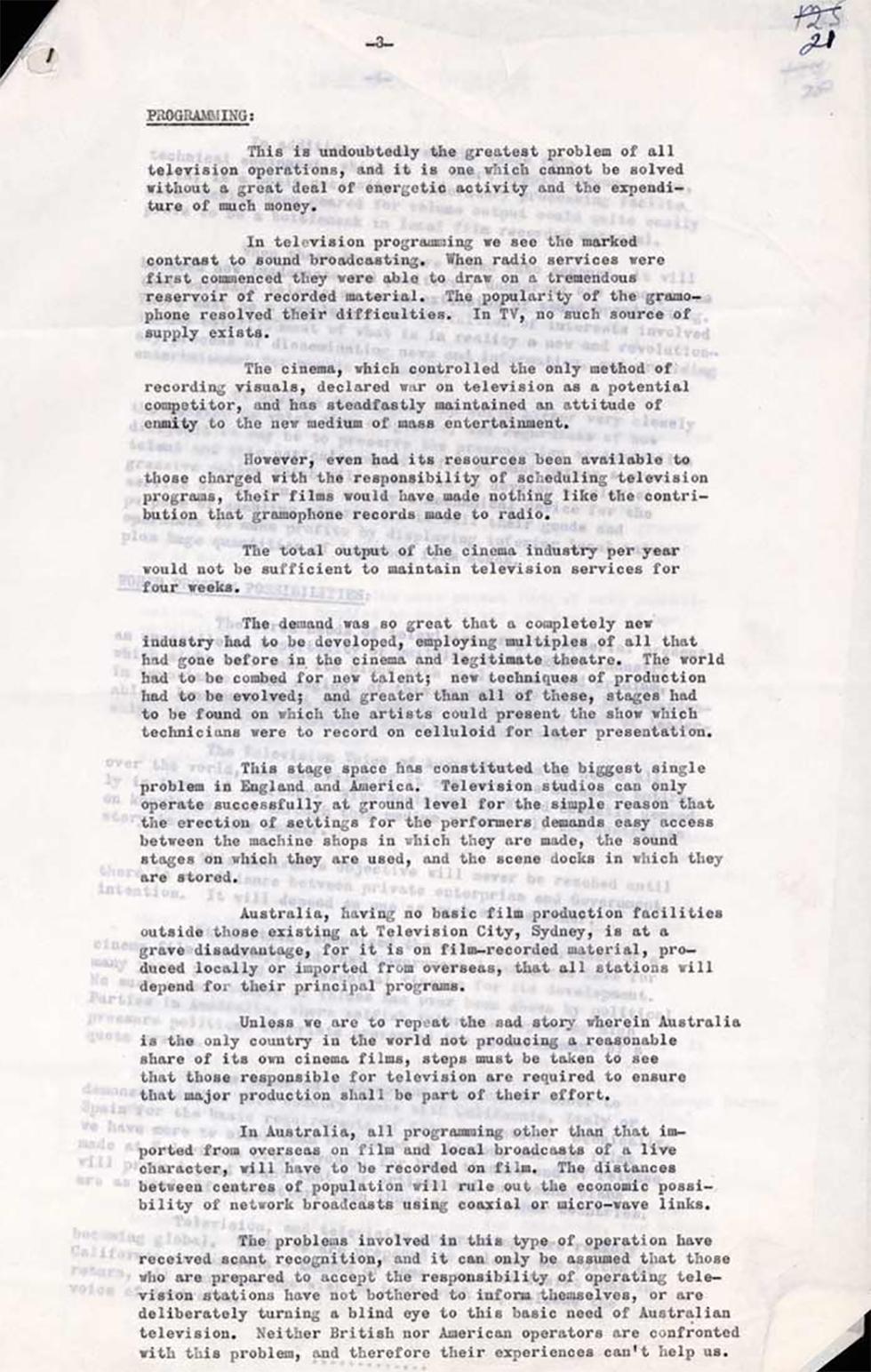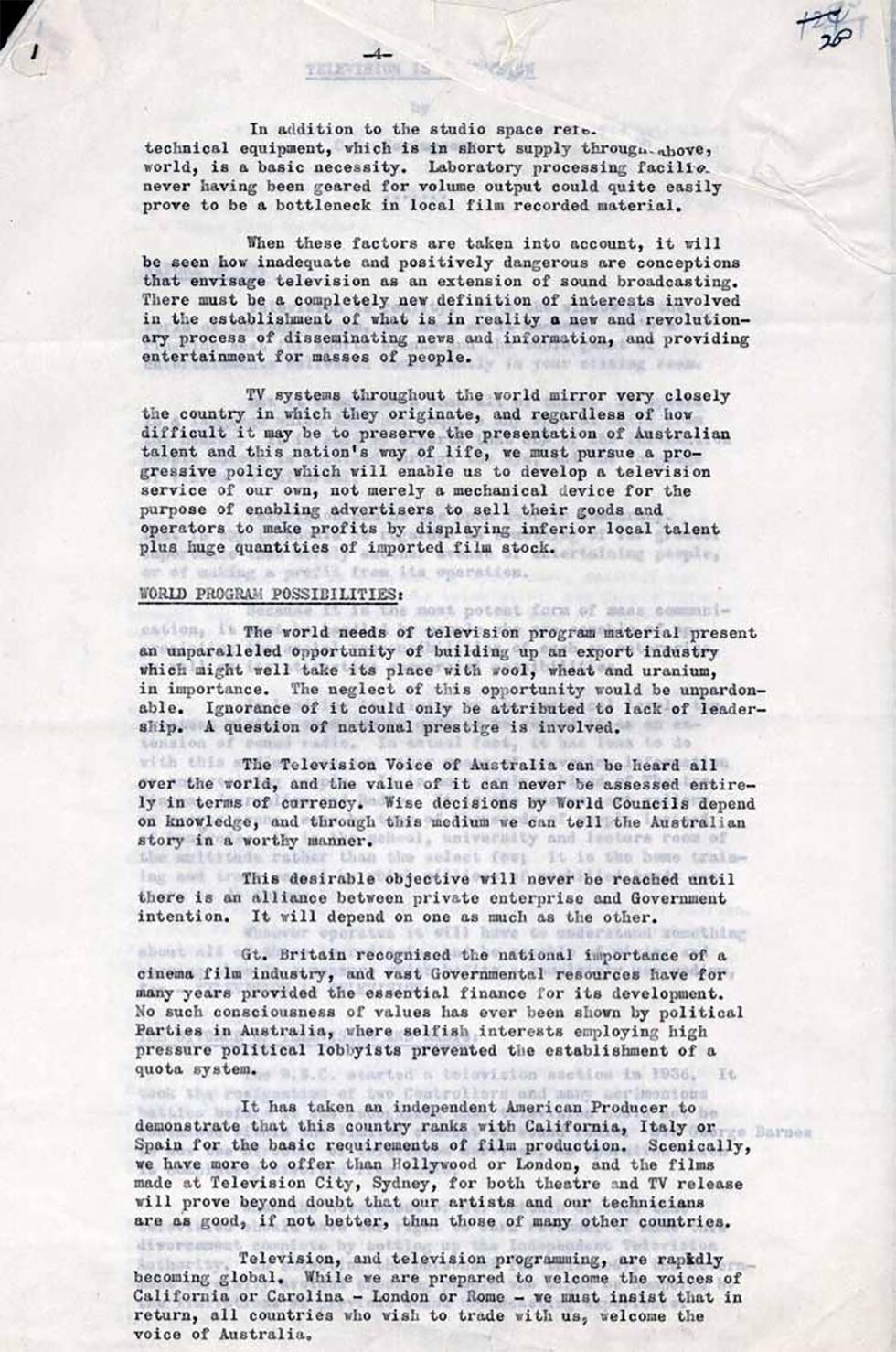
A document regarding the nature of television as a medium.

A document regarding the nature of television as a medium.

A document regarding the nature of television as a medium.

A document regarding the nature of television as a medium.




